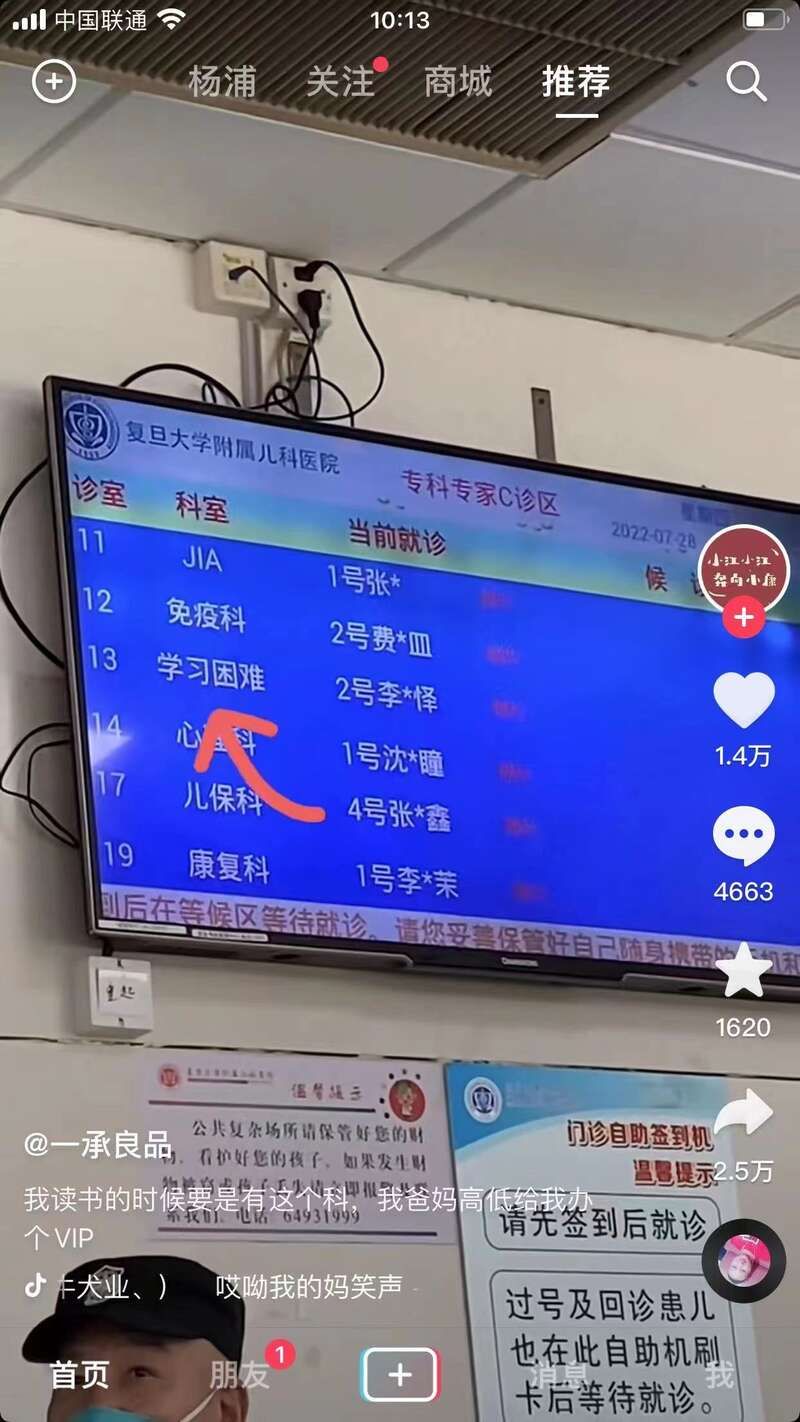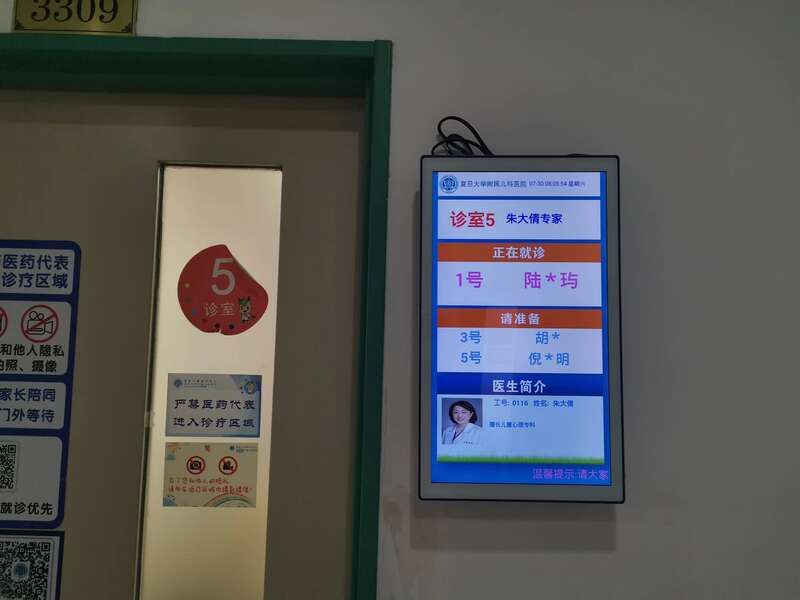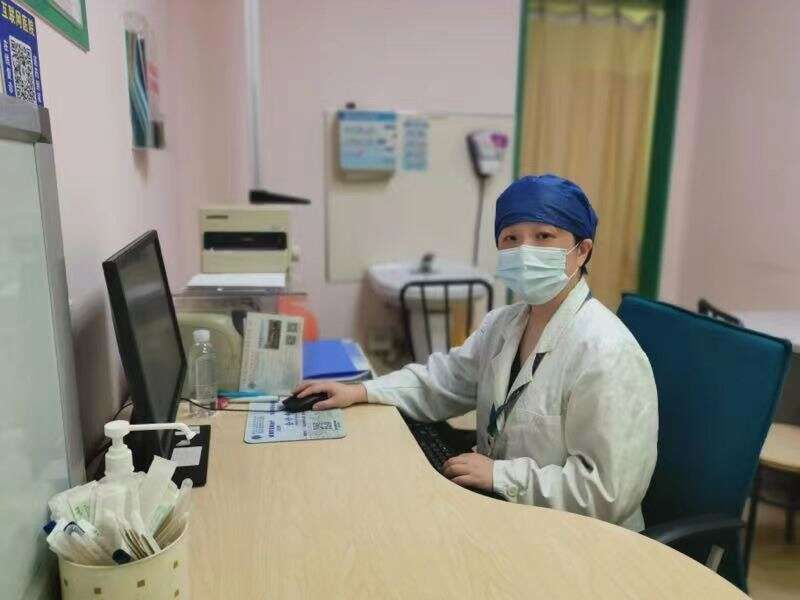China Youth Daily Client News (China Youth Daily, China Youth Daily reporter Wang Yejie) Recently, a picture of a “learning difficulty” clinic has become a hot search. When a citizen of Shanghai visited the Pediatric Hospital of Fudan University, he took a picture of the call of the “Learning Difficulty” outpatient clinic in the waiting area and posted it on Weibo. The picture suddenly became popular. Some parents are very curious after seeing this outpatient clinic, and some parents have some doubts, can “learning difficulties” also go to the hospital to see a doctor?

The reporter learned from Fudan Pediatric Hospital that the “learning difficulties” outpatient clinic really has something to do with it. Opened in September 2020, the clinic opens every Thursday afternoon. In the past two years, it has seen and helped more than 1,500 children with learning difficulties.
“Learning difficulty is a result of poor learning status and poor grades under the action of many factors. Domestic and foreign studies report that the incidence of learning difficulties is about 20%, and the number of boys is higher than that of girls. More.” Zhu Daqian, director of the Department of Pediatric Psychology at Fudan, introduced that there are many reasons for children’s learning difficulties. In addition to family education reasons, learning difficulties may be caused by various neurodevelopmental problems, emotional and mental disorders, cultural and environmental factors. etc. caused.

Zhu Daqian said that among children with “learning difficulties” caused by neurodevelopmental problems, “attention deficit hyperactivity disorder” is the most common condition in outpatient clinics. Imperfect neurodevelopment makes it difficult to concentrate on one’s own attention, resulting in easy distraction, daze, and fear of difficulties when studying, which affects academic performance. Another common situation is that although the child has normal intelligence, there is a developmental delay in a specific learning ability, which in turn affects the corresponding academic performance.
She believes that the above two types of children are often misunderstood as “primary school scum” or “little slackers” who don’t like to learn, but in fact, after formal treatment, including drug therapy, behavioral therapy, professional Rehabilitation training, etc., the situation of these children may be greatly improved, and it is also possible to counterattack from “student scumbags” to “student masters”.
It is reported that about one-third of the children in the learning difficulties outpatient clinic have some emotional and mental and psychological disorders, such as “school adjustment disorder”, “anxiety and depression” and so on. Especially in children who come to see a doctor in middle school, the proportion of emotional problems is high. Many children lose interest in learning, confront adults, and are misunderstood by parents and teachers as “adolescent rebellion”.
“For these children, we will provide comprehensive treatment for their emotional problems, mobilize the children’s families and schools to give them psychological support, and cooperate with professional drug therapy and psychotherapy. The good improvement effect has brought the children’s learning and psychology back on the right track.” Zhu Daqian said.

According to reports, after the “learning difficulties” outpatient clinic accepts children, doctors will conduct detailed interviews with families to understand the children’s learning, living conditions, and the children themselves. Emotions, developmental status, etc., and fully collect information to identify possible problems. Then, according to the interview results, some standardized assessments and examinations, including psychological tests and various types of physical examinations, are prescribed to identify the child’s difficulties in detail and obtain some quantitative indicators.
After completing the examination, the doctor will help parents to interpret the examination results, distinguish whether the child “can’t study well” or “unwilling to study well”, and find out why the child “can’t learn” and why “no”. Willing” to help parents understand the problem and work with parents to choose the most suitable treatment method.
Source: China Youth Daily Client